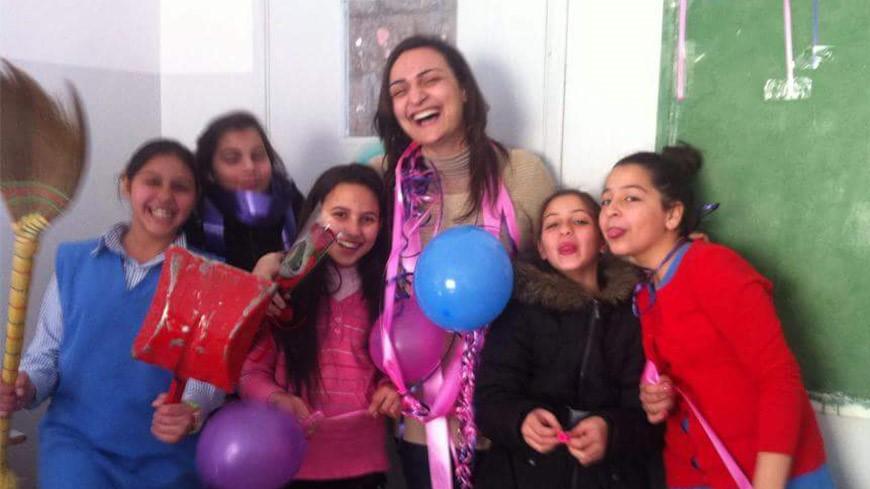Supporting Refugee Children in the Classroom and Beyond

Teach For Lebanon alumna Lama Al-Ayoubi recently graduated from the American University of Beirut and is currently working as a research assistant at the university on a project that focuses on early marriage among Syrian refugees.
On a daily basis, Lama works with young girls between the ages of 11 and 14 whose stories, she said, are often very similar to those of the students she taught during her Teach For Lebanon fellowship. In fact, during her fellowship, a quarter of Lama’s students were Syrian refugees and she feels that, “Based on my experience with Teach For Lebanon I’m able to understand, and I’m able to give the right kind of help and advice.”
As a fellow, Lama taught general science and biology to grades six through nine at a public school in northern Lebanon in a district that is home to a significant number of Syrian refugees. It’s often challenging for the children to integrate into school and succeed academically, as many struggled with moving from an Arabic-based curriculum to one that’s English-based.
“I had brilliant students who knew everything I was talking about in Arabic,” Lama explains, “but when they came here and [had to take] their exams, they just couldn’t do anything because they didn’t understand.” In order to help her students, Lama hung a small board in her classroom and, whenever her class came upon a new word, they would write and draw it on the board. This, she found, helped enrich the vocabulary of both her Lebanese and Syrian students.
Lama also focused on building a passion for science in her students. Her goal was to teach them the scientific method, instill in them a sense of scientific curiosity, and encourage their critical thinking. Lama found that her students were very excited about science and their enthusiasm allowed her to cover topics like health and nutrition in greater detail than was required by the curriculum.
“My students needed a lot of information and awareness regarding health issues and they were not getting that in their classes,” Lama says, noting that this was ultimately what prompted her to study for her Master’s in Public Health after finishing her fellowship. “I want to feel that these students are getting what they deserve. Just because they are in a public school doesn’t mean that very important topics like nutrition and sexual education should not be given to them.”.
It wasn’t all struggle for the refugee students Lama taught, however. “They had difficulties initially but they were amazing, and resilient, and able to adapt,” she says. “Of course, their parents played a big role, they were really invested in them, and so were other colleagues and Teach For Lebanon fellows.”
Today, Lama is thankful for the opportunities and lessons learned from her fellowship and excited about continuing to work to improve the lives of children in her country. She sees her current work as an extension of her fellowship: “I don’t think that the experience can just be interrupted after two years,” she says. “It just changes you completely.”
Learn more about Lama in a recent story in DHL’s Deliver magazine featuring one of her students, Randa Mando.
Read more stories about Teach For All network participants and alumni working to support refugees in their classrooms and communities here, here, and here.



